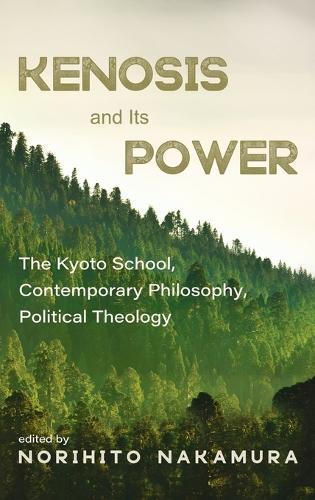Overview
What is kenosis? It is a Christian theological concept from Philippians 2 that refers to the ""self-emptying"" of Jesus. Jesus, while being fully divine, voluntarily emptied himself and renounced certain divine privileges and powers. This concept has sparked extensive theological discussions over its long history, but its meaning underwent a transformation in the twentieth century. In an era of modernity known for nihilism, where secularization and the death of God are taken for granted, kenosis prompts people to consider a new form of religion. This volume of eight essays aims to open up its philosophical and historical significance. It is divided into two parts: The first part consists of analyses of kenosis from the perspectives of political theology and contemporary philosophy (e.g., McFaigue, Kierkegaard, Bonhoeffer, Jean-Luc Nancy, Levinas, Jean-Luc Marion, etc.). The second part focuses on the Japanese philosophers of the Kyoto School and consists of studies on the interreligious potential of kenosis (e.g., Nishida, Kitamori, Nishitani, Tanabe, Abe, Nicholas of Cusa, Moltmann, Vattimo, etc.).
Full Product Details
Author: Norihito Nakamura
Publisher: Pickwick Publications
Imprint: Pickwick Publications
Dimensions:
Width: 15.20cm
, Height: 1.10cm
, Length: 22.90cm
Weight: 0.395kg
ISBN: 9798385227150
Pages: 166
Publication Date: 22 October 2025
Audience:
General/trade
,
General
Format: Hardback
Publisher's Status: Active
Availability: Available To Order

We have confirmation that this item is in stock with the supplier. It will be ordered in for you and dispatched immediately.
Reviews
""The only way to mitigate the epistemic gap between continental European and Japanese philosophy is for each of them to exercise a transformative self-negation in its mediatory relation to the other. To borrow the Kyoto School's insight, this means for a thinker to embody the practical notion of kenosis or for a community of such thinkers to engage in an act of intellectual conversion (namely, metanoesis). By successfully showcasing various formulations of this transformative self-emptiness from both perspectives, Nakamura has made a tremendous contribution to the field of continental and Japanese philosophy. Kenosis and Its Power is signaling a powerful way forward for comparative and continental philosophers."" --Takeshi Morisato, Lecturer in Non-Western Philosophy, University of Edinburgh ""Kenosis and Its Power rehabilitates the Christian concept of kenosis for the polycrisis of contemporary thought. Demonstrating the power of kenosis to address central problems in world philosophical discourse, the book is essential reading for serious readers of the Kyoto School and the philosophy of religion more generally. Highly recommended."" --Gregory S. Moss, Associate Professor of Philosophy, The Chinese University of Hong Kong ""The phenomenon of kenosis expresses an understanding of divinity that is no longer in opposition to nothingness and emptiness. The authors demonstrate the immense potential of a kenotic religion in secular times and trace its proximity to the thinking of the Kyoto School of philosophy. An exciting book and a must-read for anyone interested in interreligious dialogue."" --Niels Weidtmann, Director of College of Fellows, Eberhard Karl University of Tübingen
Author Information
Norihito Nakamura is Assistant Professor at Mie University in Japan. He is the author of Einleitung in die Untersuchung von Schellings politischer Philosophie: Ein Apokalyptiker der Antipolitik (2025) and the co-editor of Miki Kiyoshi and the Crisis of Thought (2024).



